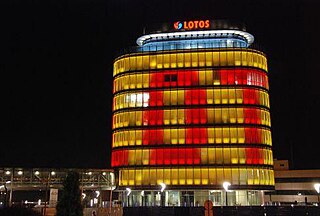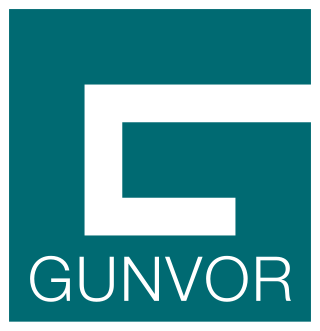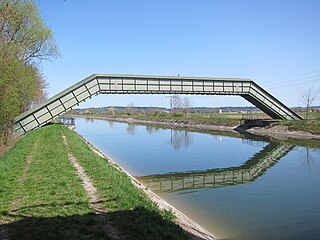
Mobil is a petroleum brand owned and operated by American oil and gas corporation ExxonMobil. The brand was formerly owned and operated by an oil and gas corporation of the same name, which itself merged with Exxon to form ExxonMobil in 1999.

Valero Energy Corporation is an American-based fuels producer mostly involved in manufacturing and marketing transportation fuels and other related products. It is headquartered in San Antonio, Texas, United States. Throughout the United States, Canada, and the U.K., the company owns and operates 15 refineries with a combined throughput capacity of approximately 3.2 million barrels per day, two renewable diesel plants that produce approximately 1.2 billion gallons per year, and 12 ethanol plants with a combined production capacity of 1.6 billion gallons as its subsidiaries.

Tesoro Corporation, known briefly as Andeavor, was a Fortune 100 and a Fortune Global 500 company headquartered in San Antonio, Texas, with 2017 annual revenues of $35 billion, and over 14,000 employees worldwide. Based on 2017 revenue, the company ranked No. 90 in the 2018 Fortune 500 list of the largest United States corporations by total revenue.
Rompetrol is a crude oil development, producer, and refiner based in Romania. It also markets and distributes refined petroleum products through its chain of gasoline and diesel fuel stations. Established as a state-owned company in 1974, it was privatized in 1993 and became a subsidiary of KMG International in 2007. It has operations in 12 countries, where it is known as The Rompetrol Group N.V.

MOL Plc., also known as MOL Group, is a Hungarian multinational oil and gas company headquartered in Budapest, Hungary. Members of MOL Group include among others the Croatian and Slovak formerly state-owned oil and gas companies, INA and Slovnaft. MOL is Hungary's most profitable enterprise, with net profits of $770 million in 2019. The company is also the third most valuable company in Central and Eastern Europe and placed 402 on the Fortune Global 500 list of the world's largest companies in 2013.
Petrol Ofisi A.Ş. is a fuel products distribution and lubricants company in Turkey. It is owned by the Dutch Vitol Group. Vitol completed its acquisition of Petrol Ofisi from OMV AG in June 2017.

Grupa Lotos S.A. was a vertically integrated oil company based in Gdańsk, in northern Poland. The company was listed in the Polish index WIG30. The Polish state was the majority shareholder with 53% percent. The company's main activity branches were: crude oil production, refining and marketing of oil products. The company was a leader in lubricants on the Polish market. Grupa Lotos was a producer of unleaded gasoline, diesel, fuel oils, aviation fuels, motor and industrial lubricants, bitumens and waxes.

The Teesside Refinery was an oil refinery and chemical plant situated just south of Seaton Carew on the River Tees in County Durham. In 2000, it was bought by Petroplus from ICI and Phillips Petroleum Company. Refining was suspended in 2009, although the site continues to operate as a terminal and storage facility.
Western Refining, Inc., is a Texas-based Fortune 200 and Global 2000 crude oil refiner and marketer operating primarily in the Southwestern, North-Central and Mid-Atlantic regions of the United States. Western Refining (WNR) has been publicly traded on the New York Stock Exchange since January 2006 and is the fourth largest publicly traded independent refiner and marketer in the nation.

Gunvor Group Ltd is a multinational energy commodities trading company registered in Cyprus, with its main trading office in Geneva, Switzerland. Gunvor also has trading offices in Singapore, Houston, Stamford, London, Calgary, and Dubai, with a network of representative offices around the globe. The company operates in the trade, transport, storage and optimization of petroleum and other energy products, as well as having investments in oil terminal and port facilities. Its operations consist of securing crude oil and petroleum products upstream and delivering it to market via pipelines and tankers. Gunvor has a separate company, Nyera, set up in 2021 to invest in renewable energy sources. It is run by energy transition director Fredrik Tornqvist.
Vitol is a Swiss-based Dutch multinational energy and commodity trading company that was founded in Rotterdam in 1966 by Henk Viëtor and Jacques Detiger. Though trading, logistics, and distribution are at the core of its business, these are notably complemented by refining, shipping, terminals, exploration and production, power generation, and retail businesses. Vitol has over 40 offices worldwide, with its largest operations in Geneva, Houston, London, and Singapore.

The Transalpine Pipeline (TAL) is a crude oil pipeline, which connects Italy, Austria and Germany.

Clark Brands, formerly Clark Oil, began as Clark's Super Gas and was a 20th-century oil company headquartered in Milwaukee, Wisconsin.
ARMO oil refiner is one of the two oil refiners in Albania. It owns oil refineries at Ballsh and Fier, research center, 11 depots, a small network of fuel stations, and the Vlorë Terminal located in the south coast on Adriatic sea. The CEO of Armo Energy is Rezart Taci. Mr. Taci is also the head of Taçi Oil
JDR is a provider of subsea technologies and services that provide control and power delivery for both the oil and gas and renewable energy sectors of the global offshore energy industry.
KMG International N.V. is an international oil company with operations in 15 countries throughout Europe, Central Asia and North Africa. The group is active primarily in refining, marketing and trading, with additional operations in exploration and production, and other oil industry services such as drilling, EPCM, and transportation.
The Antipinsky Refinery is a Russian oil refinery located in south-east Tyumen, Tyumen Oblast, adjacent to the Tyumen trunk oil pipelines and the Tyumen-3 pumping station. It is one of the largest refineries in Russia, participating on the Urals and West Siberian oil market, where it is the only refinery in operation in the Ural Federal District. As of 2022, it is Russia's largest privately owned oil processing plant, with a total processing capacity of nine million ton of crude oil per year. It is also the only oil refinery constructed in Russia since the dissolution of the Soviet Union.
VARO Energy (VARO) is a diversified energy company headquartered in Zug, Switzerland with a presence in twenty-six countries. It operates across the energy value chains in manufacturing, storage and distribution, marketing and trading, with businesses in conventional energies and sustainable energies. In 2022, VARO announced its “ONE VARO Transformation strategy” which focuses on conventional and sustainable energies, with the latter based on five strategic growth pillars - biofuels, green hydrogen, biomethane & bio-LNG, nature-based carbon removals and e-mobility. VARO Energy's shareholders consist of the global investment firm, Carlyle Group and the global energy and commodities company Vitol. The company CEO is Dev Sanyal.
In 2020, oil reserves in France were equivalent to 1% of its annual consumption. These reserves in the geological sense should not be confused with the strategic reserves of three months' full consumption, which can be used in the event of a serious international crisis. In fact, as a member of the International Energy Agency (IEA), France must maintain oil reserves equivalent to 90 days' net imports, corresponding in 2010 to around 17 million tonnes.









